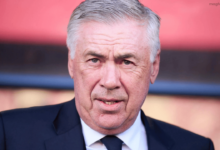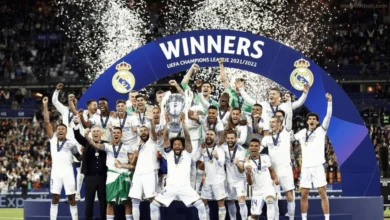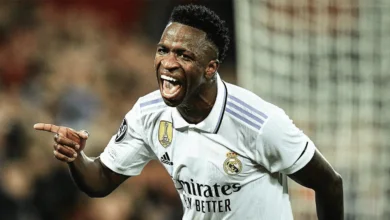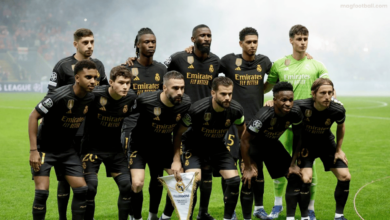How Real Madrid Dominated European Football: A Look at Their Recent Champions League Success
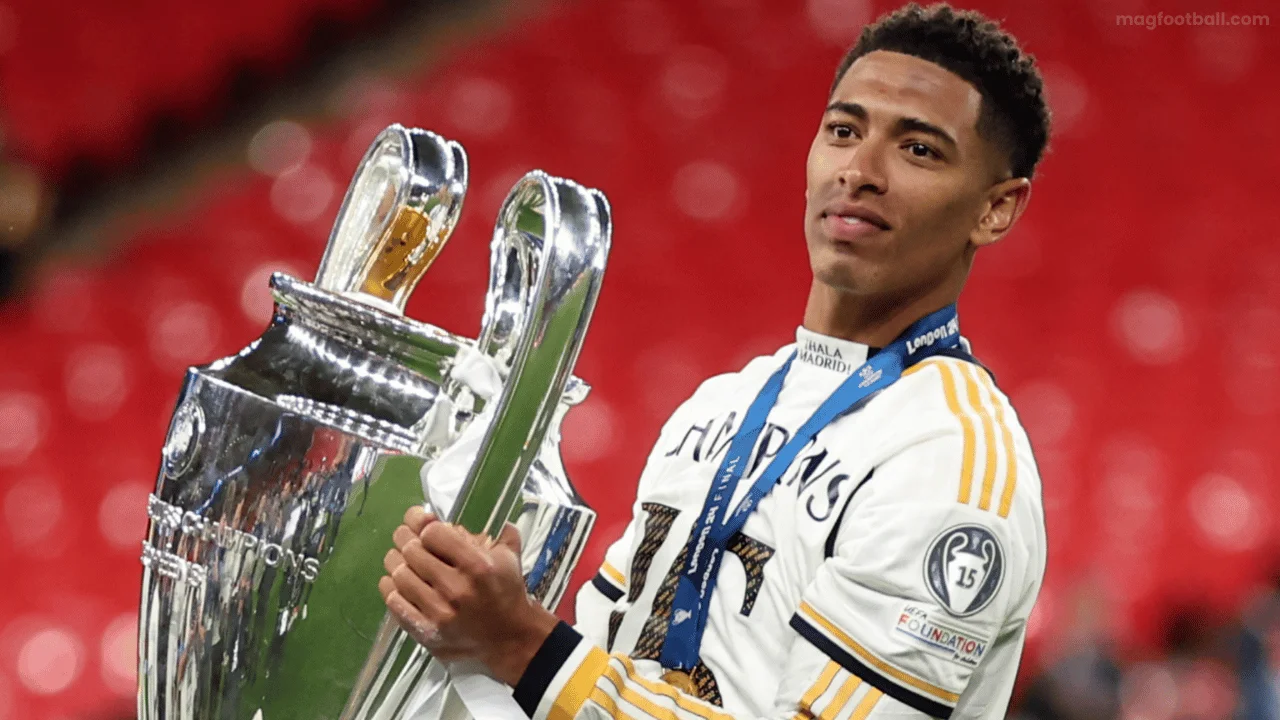
Real Madrid’s unparalleled success in European football, particularly in the UEFA Champions League, has solidified the club’s position as a global powerhouse. With a record 14 Champions League titles, including five in just the last decade, Real Madrid has dominated European football in a way no other club has. This article delves deep into the reasons behind Real Madrid’s recent Champions League success, exploring their strategic management, key players, and the unique culture that has driven their dominance.
Table of Contents
The Legacy of Champions League Dominance
Real Madrid’s Champions League legacy began in the 1950s when the club won five consecutive European Cups from 1956 to 1960, led by legendary players such as Alfredo Di Stefano and Ferenc Puskas. This early success laid the foundation for Real Madrid’s identity as a club that thrives on the European stage. However, after several decades of fluctuating results, it wasn’t until the early 2000s and, more significantly, the 2010s that the club re-established its dominance in European football.
Under the leadership of Florentino Pérez, who returned to the club presidency in 2009, Real Madrid embarked on a mission to restore their European glory. The appointment of Zinedine Zidane as head coach in 2016 was the final piece of the puzzle that catapulted the club back to the top of European football.
Strategic Management: A Winning Formula
One of the key reasons behind Real Madrid’s recent Champions League dominance is the club’s strategic management, both on and off the field. Florentino Pérez’s return marked the beginning of the club’s modern-day success, with a focus on blending experienced superstars with emerging talent. This strategy, often referred to as the “Galácticos” approach, saw Real Madrid sign world-class players such as Cristiano Ronaldo, Gareth Bale, and Luka Modric, while also nurturing young talent like Marco Asensio and Vinícius Jr.
Pérez’s investment in both established stars and the next generation allowed Real Madrid to maintain a competitive edge in Europe, balancing short-term success with long-term sustainability. The signings of Ronaldo and Bale, in particular, were pivotal, with both players playing key roles in the club’s four Champions League titles between 2014 and 2018.
In addition to their star signings, Real Madrid’s strong academy system, La Fábrica, continues to produce exceptional talent. Players like Dani Carvajal and Nacho, both academy graduates, have been crucial in maintaining squad depth and providing continuity in the team.
Zinedine Zidane’s Tactical Brilliance
While Real Madrid’s squad boasted some of the world’s best players, it was Zinedine Zidane’s tactical brilliance that truly unlocked the club’s potential in the Champions League. Zidane’s appointment as head coach in 2016 was a turning point, as he led the club to an unprecedented three consecutive Champions League titles from 2016 to 2018.
Zidane’s managerial style was characterized by tactical flexibility, man-management skills, and an ability to adapt to different opponents. He often rotated the squad to keep players fresh, allowing key figures like Cristiano Ronaldo and Luka Modric to deliver consistently at crucial moments. Zidane’s calm demeanor also instilled confidence in the team, fostering a winning mentality that has become synonymous with Real Madrid in Europe.
One of Zidane’s greatest tactical achievements was his ability to get the best out of Cristiano Ronaldo. The Portuguese forward’s transformation into a lethal striker under Zidane was a key factor in Real Madrid’s Champions League success, with Ronaldo scoring decisive goals in every campaign. Zidane’s trust in his players, combined with his understanding of the tactical nuances of European football, made him one of the most successful managers in Champions League history.
The Role of Cristiano Ronaldo: A Game-Changer
No discussion of Real Madrid’s recent Champions League dominance would be complete without highlighting the role of Cristiano Ronaldo. Signed in 2009 for a then-world record fee, Ronaldo quickly became the face of Real Madrid’s European ambitions. His goal-scoring prowess, leadership, and unrelenting drive to win were instrumental in the club’s Champions League triumphs.
Ronaldo’s ability to perform in the biggest moments set him apart as one of the greatest players in Champions League history. He scored decisive goals in multiple finals, including a brace in the 2017 final against Juventus, and his bicycle kick against the same team in 2018 remains one of the most iconic moments in the competition’s history.
Over his nine years at Real Madrid, Ronaldo became the Champions League’s all-time leading scorer, amassing a staggering 105 goals for the club. His influence extended beyond the pitch, as his winning mentality and relentless work ethic inspired his teammates to push for success year after year.
Key Moments in Recent Champions League Success
Real Madrid’s recent Champions League dominance is defined by several key moments, each of which highlights the club’s resilience, tactical nous, and star power. Some of the most memorable moments include:
2014: La Décima
Real Madrid’s long wait for their 10th European Cup, known as La Décima, came to an end in 2014. After a 12-year drought, the club lifted the Champions League trophy in dramatic fashion, defeating Atlético Madrid 4-1 after extra time in the final. Sergio Ramos’ 93rd-minute header to equalize the match remains one of the most iconic goals in the club’s history, setting the stage for extra time and Real Madrid’s eventual victory.
2016-2018: Three Consecutive Titles
Real Madrid made history by winning three consecutive Champions League titles from 2016 to 2018, a feat unmatched in the modern era. Under Zidane’s leadership, the club defeated Atlético Madrid, Juventus, and Liverpool in three successive finals, solidifying their status as the kings of Europe. This period also saw Cristiano Ronaldo win multiple Ballon d’Or awards, further cementing his legacy as one of the greatest players of all time.
2018: Bale’s Stunning Bicycle Kick
In the 2018 final against Liverpool, Gareth Bale produced one of the greatest goals in Champions League history—a stunning bicycle kick that helped Real Madrid secure a 3-1 victory. Bale’s performance off the bench was a testament to the club’s incredible depth and ability to deliver in high-pressure moments. His goal is often regarded as one of the finest ever seen in a Champions League final.
The Next Generation: Vinícius Jr. and Rodrygo
While Real Madrid’s recent success has been defined by the contributions of experienced stars like Ronaldo, Modric, and Ramos, the club’s future looks equally bright thanks to the emergence of young talents like Vinícius Jr. and Rodrygo. Both Brazilian wingers have shown immense potential and played crucial roles in Real Madrid’s 2021-2022 Champions League campaign.
Vinícius Jr., in particular, has developed into one of the most exciting wingers in world football. His blistering pace, dribbling ability, and improved finishing have made him a key player for Real Madrid. In the 2022 final against Liverpool, Vinícius scored the winning goal, further establishing himself as one of the brightest stars in European football.
Conclusion: Real Madrid’s Champions League DNA
Real Madrid’s recent dominance in the Champions League is a testament to the club’s unique culture of winning, strategic management, and the ability to attract and develop world-class talent. Whether through the brilliance of Cristiano Ronaldo, the tactical acumen of Zidane, or the emergence of future stars like Vinícius Jr., Real Madrid has consistently demonstrated why they are the most successful club in European football history.
As they continue to evolve and adapt to new challenges, one thing remains certain: Real Madrid’s hunger for Champions League success is as strong as ever. With their rich history, winning mentality, and unmatched pedigree, Real Madrid will continue to be the team to beat in European football for years to come.


